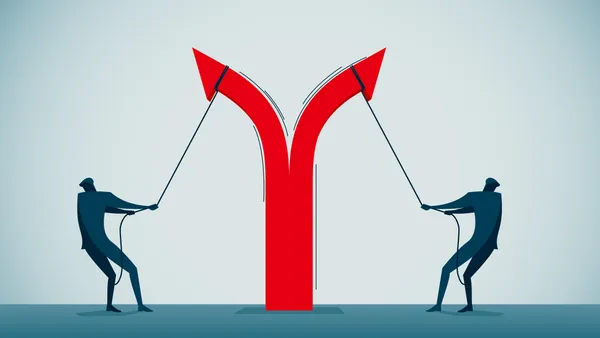In what could be a pivotal setback for the National Rifle Association, a judge has ruled that it filed bankruptcy to gain an unfair advantage in a legal battle with the New York attorney general.
The NRA had claimed its Chapter 11 petition, which it filed in Dallas bankruptcy court in January, would facilitate its plan to relocate to Texas from New York, where it has been incorporated since its founding in 1871.
But U.S. Bankruptcy Judge Harlin Hale dismissed the case, finding it was filed in bad faith as “an effort to gain an unfair litigation advantage in the NYAG enforcement action” and as an effort to avoid New York’s regulatory scheme for evaluating whether a nonprofit should continue in existence.
In her lawsuit, New York Attorney General Letitia James is seeking dissolution of the NRA based on allegations that executives of the gun-rights group used the organization as a “personal piggy bank” by illegally diverting $64 million into their own pockets.
“The primary purpose of the bankruptcy filing was to avoid potential dissolution” in the New York litigation, Hale said.
According to The New York Times, the Chapter 11 petition “proved a strategic blunder” that “only buttressed Ms. James’s contentions of corruption.”
Judge Hale’s ruling “brings the NRA to a crossroads 150 years after its founding in New York,” the Times said. “It now faces a legal reckoning in the state, where Ms. James’s office will have to convince a court of what the appropriate remedy for its alleged actions might be.”
The NRA noted in a statement that “the court dismissed the bankruptcy filing without prejudice, meaning the NRA does have the option to file a new bankruptcy case.”
But Hale warned in his decision that if the case was refiled, he might appoint a trustee to take control of the NRA and its finances. “That’s the scenario the NRA most wants to avoid,” said Adam Levitin, a professor specializing in bankruptcy at Georgetown Law.
Hale’s ruling followed a 12-day trial of motions to dismiss the petition filed by James and the NRA’s former advertising firm. The witnesses included NRA’s chief executive, Wayne LaPierre, who testified he did not consult most of its board and then-CFO Craig Spray before deciding to file bankruptcy.
“Excluding so many people from the process of deciding to file for bankruptcy … is nothing less than shocking,” Hale said.
The current acting CFO, Sonya Rowling, testified that she believed the NRA was in bankruptcy because of potential litigation losses but Hale said that concern “did not appear to be shared by Mr. LaPierre or supported by other evidence.”












